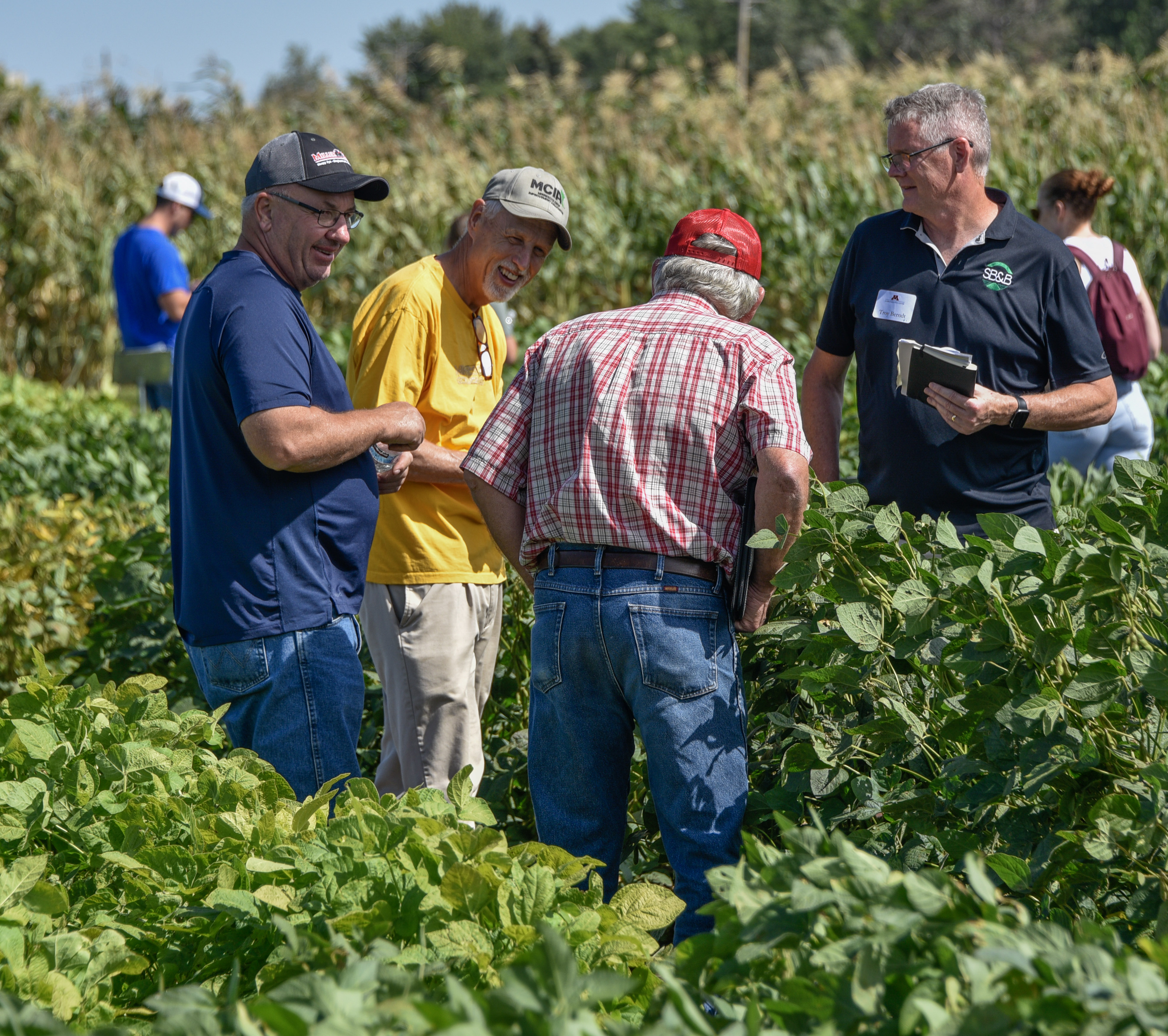First Field Day Launches New UMN Soybean Research Center
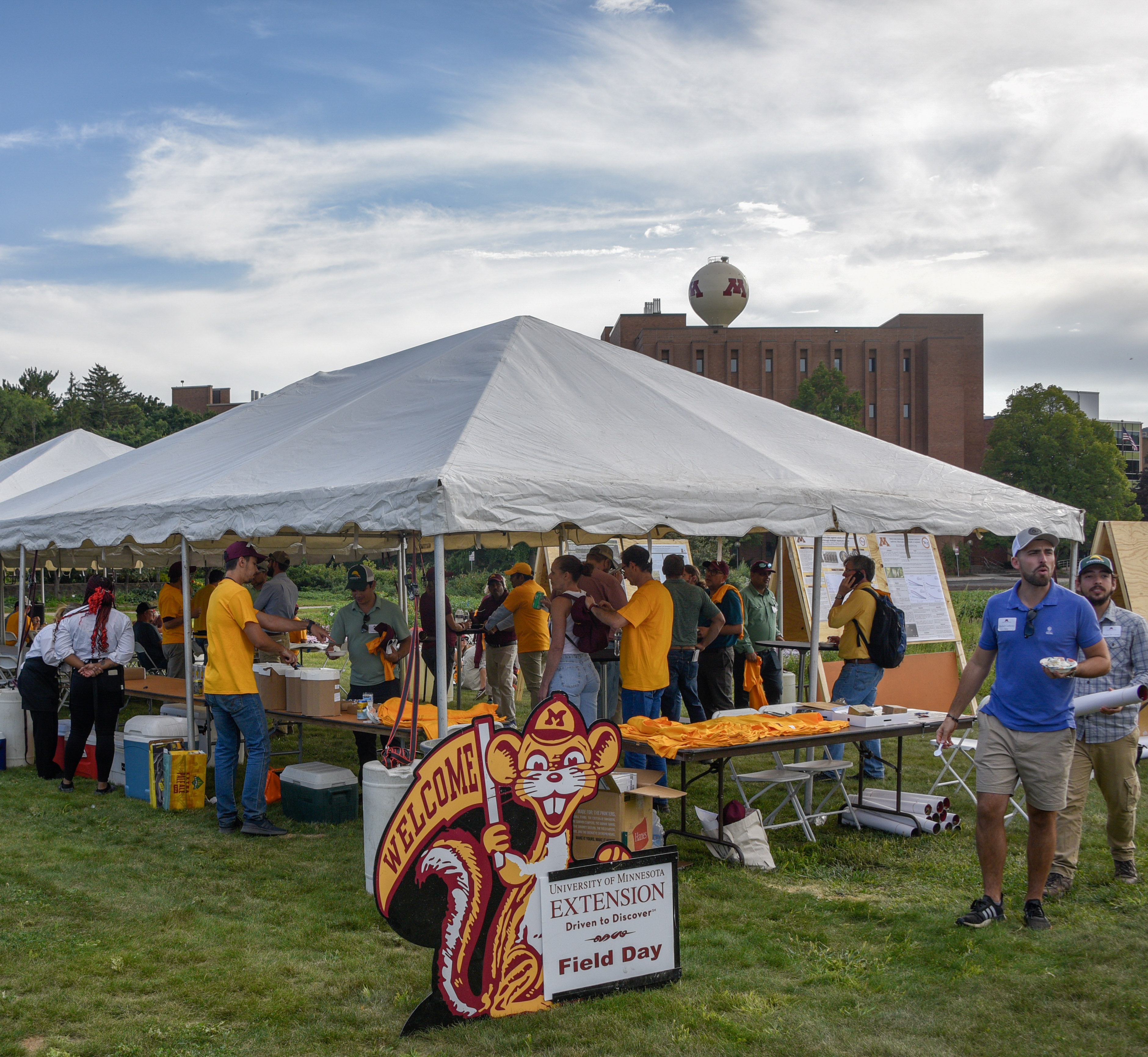
Collaborating researchers showcase field trials for farmers and stakeholders.
Standing in the crop research fields near the St. Paul campus, University of Minnesota researchers and students shared their latest collaborative efforts to improve soybean production.
A warm late-August day showcased the field research kickoff of the UMN Soybean Research Center (SRC). Grad students, postdocs, and researchers across many UMN departments in the College of Food, Agricultural and Natural Resource Services (CFANS) presented their soybean work, ranging from diseases and insects to weeds, livestock and molecular genetics.
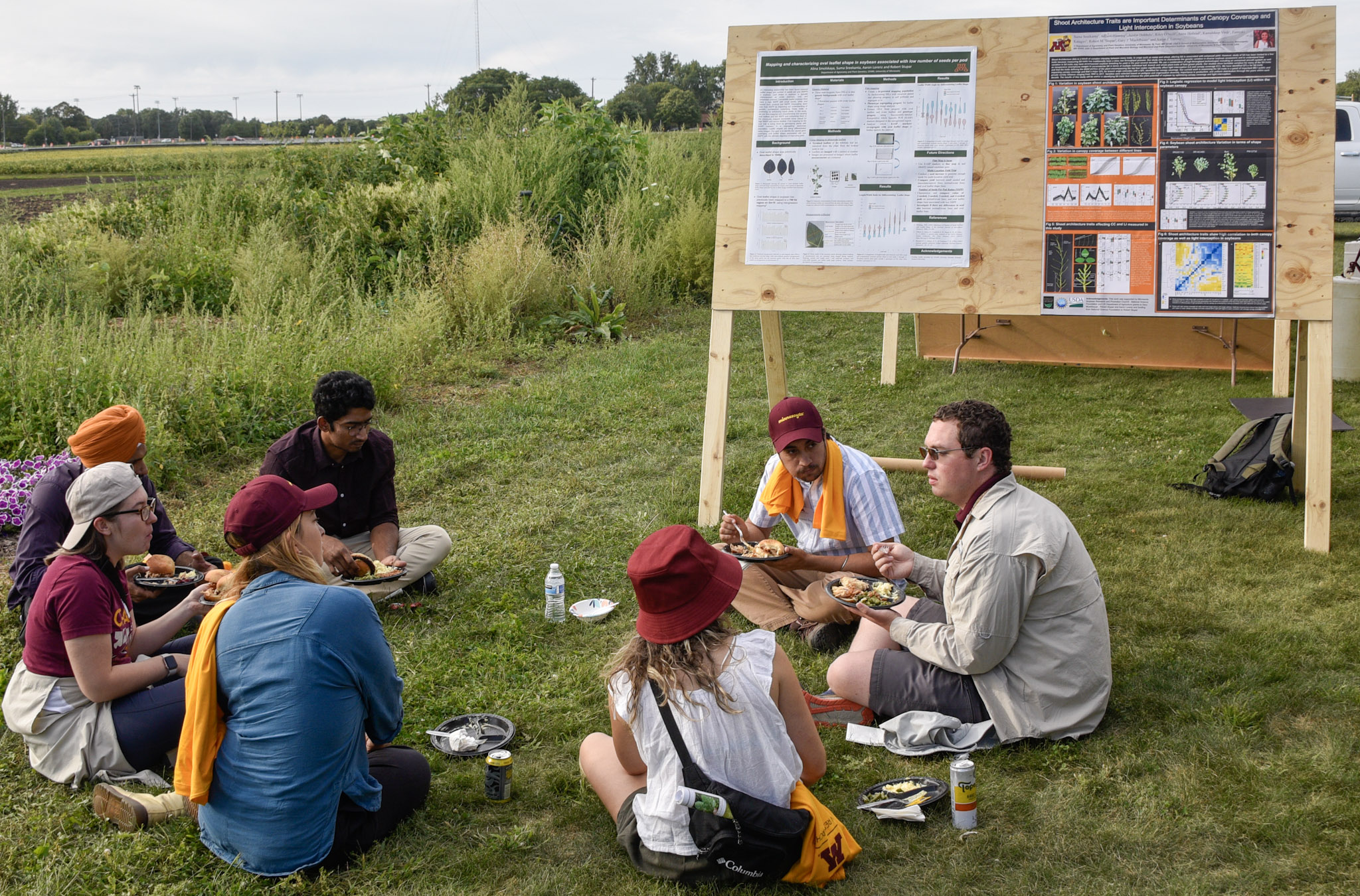
The UMN SRC brings together a depth and breadth of soybean researchers and projects that few Land Grant institutions can tout. Extension agronomist and UMN SRC Co-Lead Seth Naeve kicked off the day by highlighting the quality collaborations and funding to attendees, including crop consultants, farmers, industry partners and supply chain representatives.
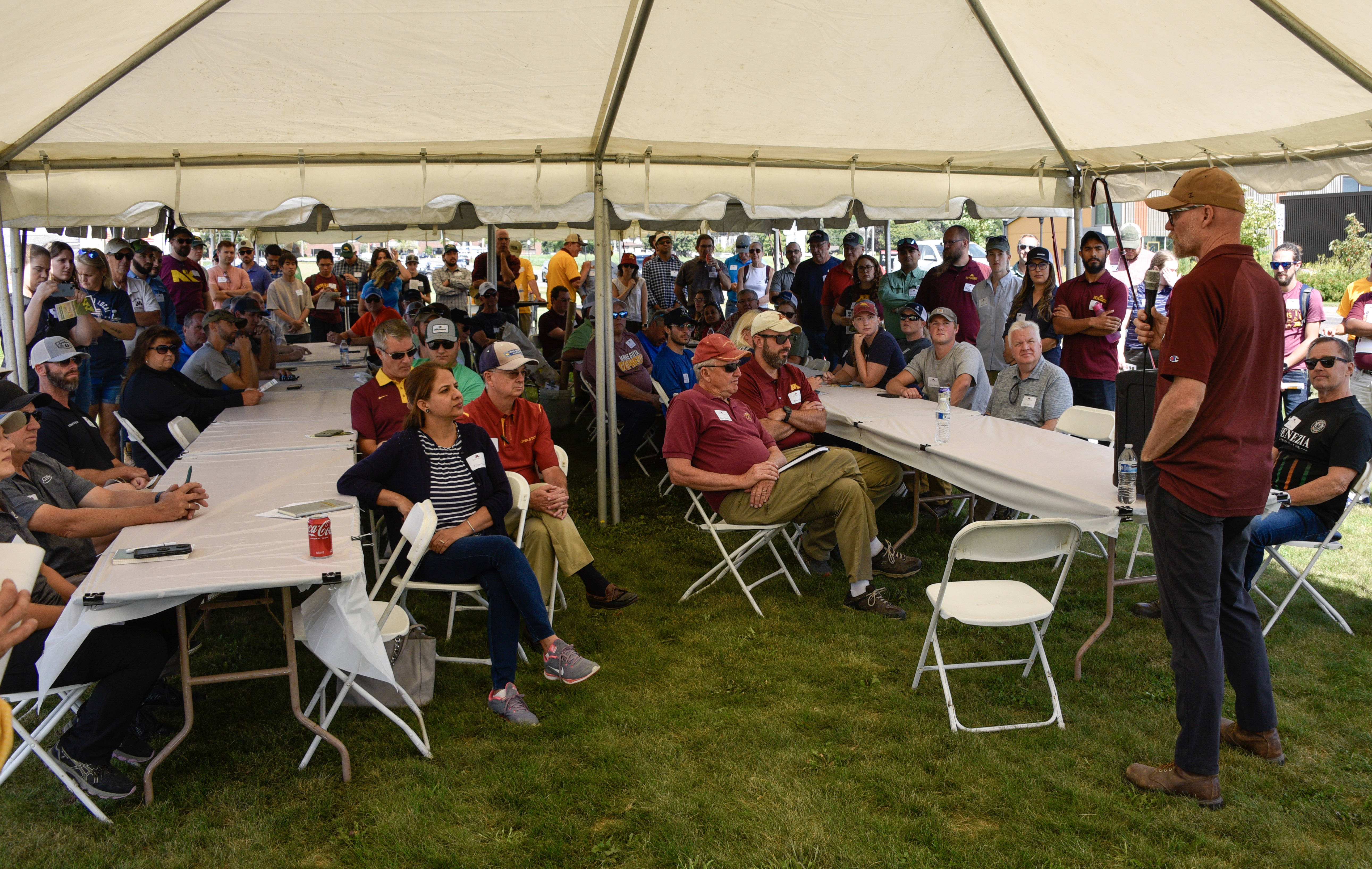
Synergy among departments
“We’re creating a greater co-working synergy among our 23 research groups across nine CFANS departments to tackle larger and more complex soybean issues,” Naeve says. “The Soybean Research Center will showcase researcher and student talent, drive greater funding, increase networking and industry ties, and enhance communications of research results—all while improving soybean sustainability.”
Numerous stations across the research farm offered presentations by professors and students regarding the 2023 trials. Naeve, his SRC Co-Lead and plant geneticist Aaron Lorenz and grad students discussed weed control along with soybean cultivar and trait breeding and development. Another group of UMN entomologists, pathologists and students showcased insect and disease control plots.
Novel approaches to pest challenges in soybeans are just a few valuable aspects of the SRC. For example:
- Exploring the use of plant canopy architecture and leaf structure to reduce the incidence of Sclerotinia stem rot.
- Experimenting with parasitic wasps to attack the larvae of the destructive soybean gall midge.
- Using integrated weed management tactics on herbicide-resistant weeds to reduce the weed seed bank, protect water quality and enhance economic returns.
Delivering unique innovations to reduce the economic impact of cyst nematodes, iron deficiency chlorosis, and white mold.
Greater soybean sustainability
Along with this critical research on pests that impact a farmer’s bottom line, SRC collaborations aim to expand soybean sustainability in livestock feed, renewable fuels, and food-grade products.
“Cutting-edge research projects around specialty varietal traits that change protein and oil content could greatly impact the renewable fuel, animal feed and human food industries,” Lorenz says. “Sustaining Minnesota as a top soybean acreage and food-grade bean leader—while working closely with farmers and industry—is paramount to the success of our Soybean Research Center.”
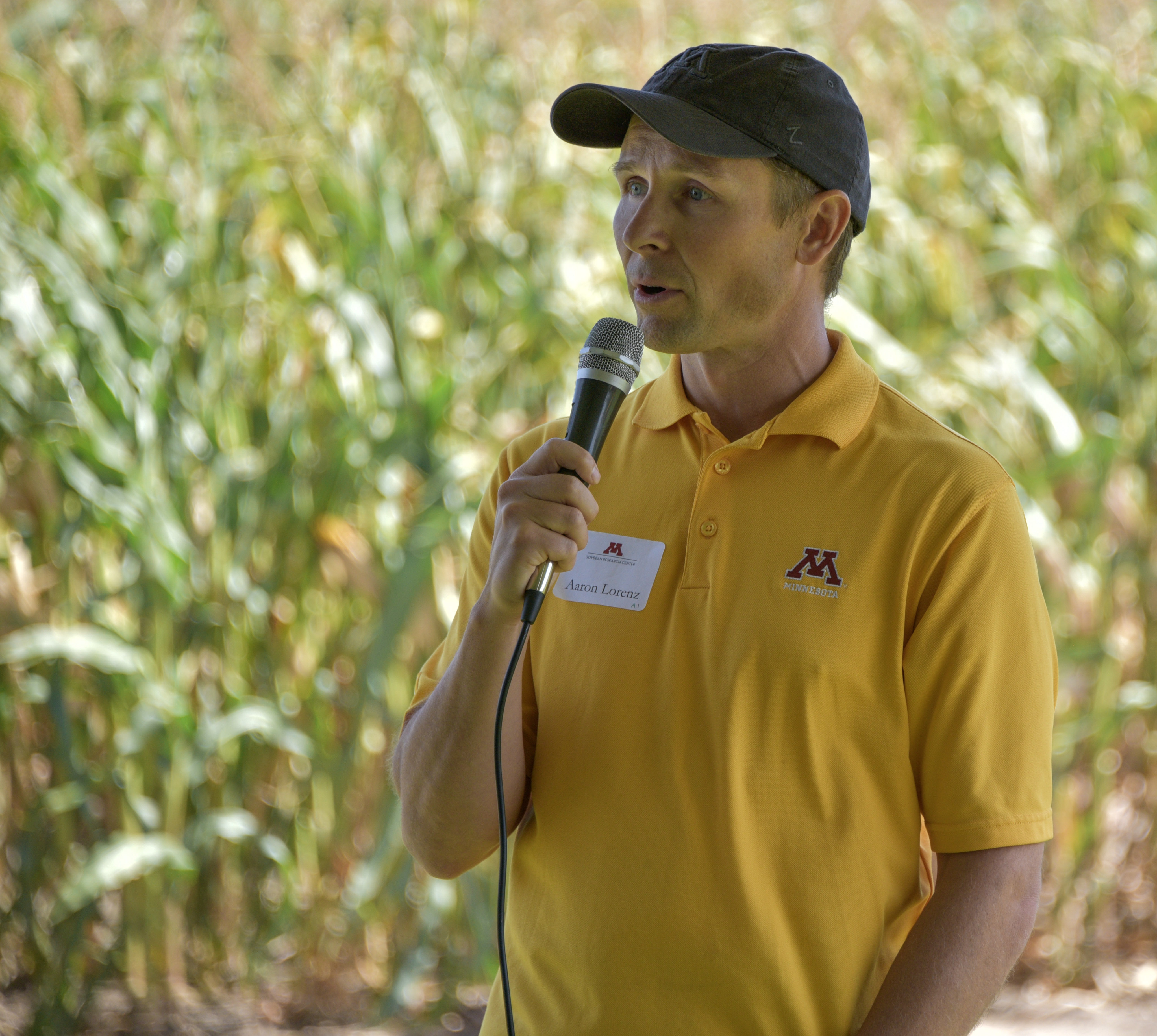
Grad students, post docs succeed
Another SRC crop of importance is educating and showcasing the research by graduate students who are the future of the agricultural industry.
“We conduct research that benefits both the public and our private industry partners,” Naeve says. “The real value beyond their UMN SRC research is developing high-quality graduates with the skillsets for advancement in both the public and private sectors.”
Lorenz cited this field day as one of the numerous first-hand learning events that SRC offers its grad students. “By expanding opportunities for industry-student interaction, we’re raising awareness of our program excellence and the talented young researchers who will boost soybean sustainability into the future.”
Funding benefits farmers, industry, public
With UMN offering the most complimentary collections of soybean researchers in the country, the SRC leverages research funds from the Minnesota Soybean Research & Promotions Council, Minnesota Soybean Growers Association, United Soybean Board, North Central Soybean Research Program, Minnesota Department of Agriculture and USDA.
More dedicated funding is needed to help grow the SRC’s strategic vision of achieving more collaborative projects that tackle complex problems. “The field day laid the groundwork for current and future research needs among industry stakeholders. We aim to gain more financial and problem-solving support to benefit farmers and the soybean industry,” Naeve says.
